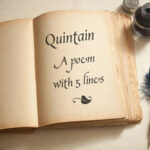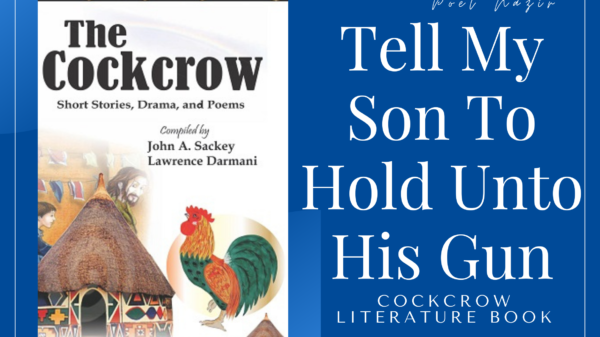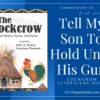The Bard of Avon, William Shakespeare is said to have invented some couple of words and phrases in the English Language. These words have gained worldwide recognition and is being used in modern-day English. The playwright is recorded to have invented more than 1,700 words in English Language.
Read Also: Most Commonly Used Words Invented By William Shakespeare
Words Invented By William Shakespeare

Admirable
- Something that deserves respect or love.
Auspicious
- Favorable; promising success; a good omen
Baseless
- Without a grounds or reasons; not based on fact
Barefaced
- Shameless; without concealment or disguise.
Belongings
- An individual’s moveable possessions.
Castigate
- To punish someone or something harshly.
Clangor
- An extremely loud (clanging) sound.
Dawn
- The beginning appearance of light before morning.
Dexterously
- Skillful, mostly in the use of one’s hands (mind)
Dwindle
- To get smaller; diminish or vanish; often used to describe money.
Hostile
- An unfriendly person or demeanor.
Ill-used
- To treat someone very badly.
Long-legged
- To have or possess long legs.
Lonely
- To be alone.
Multitudinous
- A lot or variety or in large or great number.
Ode
- A lyrical poem.
Overblown
- Pretentious or outrageous in nature.
Sanctimonious
- Pretending to be very religious or righteous or highly committed.
Skim milk
- Milk where the fat in it is removed.
Watchdog
- Used for a person or group that keeps a close watch to discover wrong or illegal activity
Read Also: Sonnets: Understanding The Various Types, Variations & Schemes
Phrases Invented By William Shakespeare
Shakespeare did not only invent words in the English language, he also brough some phrases to life. Most of these words are famously known all around the world. Some of them are;
“All that glisters is not gold.” (Merchant of Venice)
- We usually use this phrase after we discover that something that looks good turns out not to be that great, and substitute “glitters” for “glisters.”
“As good luck would have it” (The Merry Wives of Windsor)
- This means something happened to you that was pure chance or luck.
“Break the ice” (The Taming of the Shrew)
- Often when you meet someone for the first time, you “break the ice” by asking them polite questions about themselves.
“Clothes make the man.” (Hamlet)
- Although not always true, this phrase implies that how a person dresses tells you something about who they are as a person.
“Cold comfort” (King John)
- It’s a form of consolidation, but it is a bad consolidation since the whole situation is bad like dropping the inflation rate for millions of unemployed would be a “cold comfort.”
“Come what come may” (“come what may“) (Macbeth)
- Whatever is going to happen is going to happen. You are accepting that fact.
“Devil incarnate” (Titus Andronicus)
- This describes someone that is evil and scheming like a reincarnation of the devil.
“Eaten me out of house and home” (2 Henry IV)
- You might hear parents say this about teenagers a lot. They’ve eaten so much that all the food is gone.
“Fair play” (The Tempest)
- Follow the rules, especially in competitions or sports.
“A laughing stock” (The Merry Wives of Windsor)
- To be a laughing stock is to be considered a joke by many people.
“In a pickle” (The Tempest)
- To be “in a pickle” is to be in trouble or in a situation that you cannot easily get out of.
“It’s Greek to me” (Julius Caesar)
- When you say, “it’s Greek to me,” you are admitting that you do not know or understand something.
“Pound of flesh” (The Merchant of Venice)
- When this phrase is used it is talking about a cruel or unusual punishment.
“Such stuff as dreams are made on” (The Tempest)
- Describes when something is so good that it is just like a dream.
“The lady doth protest too much” (Hamlet)
- If someone denies something more than once, you can say “the lady doth protest too much,” meaning you think that they feel the opposite of what they are saying.
“Too much of a good thing” (As You Like It)
- It is said that “too much of a good thing” (i.e. money, love, food) is not necessarily good for you.
“Wear one’s heart on one’s sleeve” (Othello)
- To be a hopeless romantic (or be open and honest about how you feel) is to wear one’s heart on one’s sleeve.
“Wild-goose chase” (Romeo and Juliet)
- When someone leads you on a wild chase to find them, it is commonly known as a wild-goose chase.
“What’s done is done” (Macbeth)
- It is done, and there is no going back. You must simply deal with the consequences.
![]()
- Who Are Affrilachian Poets? What Does Affrilachian Mean? The term “Affrilachian” is a portmanteau blending “African” and “Appalachian“. The… Read more: Who Are Affrilachian Poets?
- Verses in Literature: Definition, Types, and ExamplesIn literature, a verse refers to a single line of poetry or a composition written… Read more: Verses in Literature: Definition, Types, and Examples
- Some Notable Words & Phrases Invented By William ShakespeareThe Bard of Avon, William Shakespeare is said to have invented some couple of words… Read more: Some Notable Words & Phrases Invented By William Shakespeare
- Quintain – 5 Line PoemsQuintain is also known as a quintet. It is any poetic piece made of stanza… Read more: Quintain – 5 Line Poems
- Understanding Stanzas; Purpose, Types & ExamplesA stanza simply refers to the major division in a poetry piece. In other words,… Read more: Understanding Stanzas; Purpose, Types & Examples
Please Subscribe To Our Newsletter!
thepoetshub
Poet Nazir is a writer and an editor here on ThePoetsHub. Outside this space, he works as a poet, screenwriter, author, relationship adviser and a reader. He is also the founder & lead director of PNSP Studios, a film production firm.














